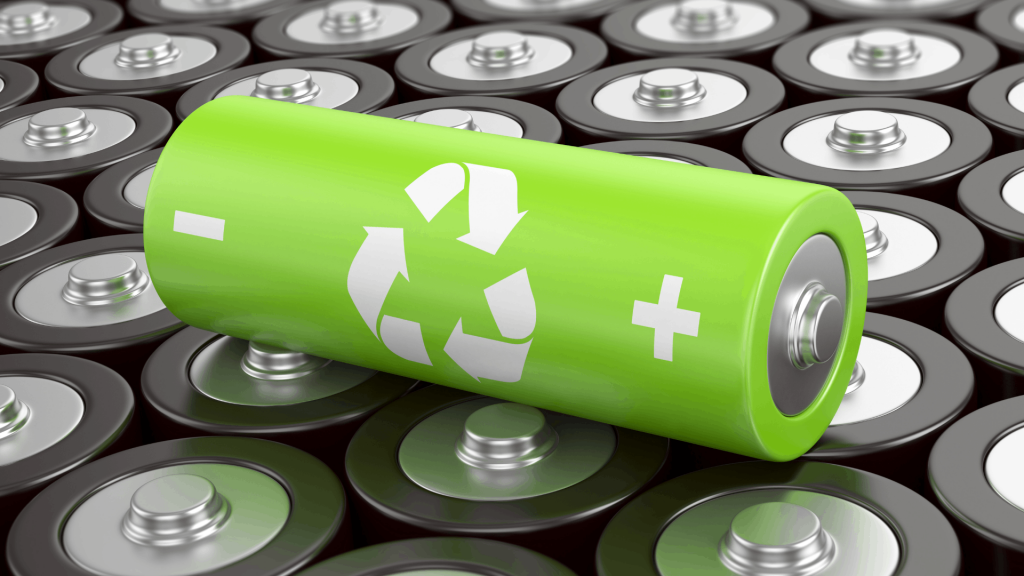Batteries will be more sustainable, recyclable and efficient in the EU. The new regulation on batteries and waste batteries has been approved.
3. 7. 2023
On 14 June (Wednesday), the European Parliament approved a draft regulation on batteries and waste batteries. The new rules, which take into account technological developments and advances, cover the entire life cycle of batteries, from their design and manufacture to their end-of-life and the waste management of all types of batteries sold in the European Union.
The most significant measures of the approved regulation include a mandatory carbon footprint declaration and label for batteries for electric vehicles (EVs), batteries for light mean of transport (e. g. electric scooters or bicycles (LMTs)) and rechargeable industrial batteries with a capacity greater than 2 kWh, designing portable batteries in appliances so that they can be easily removed and replaced by consumers, a digital passport for LMT batteries, industrial batteries with a capacity greater than 2 kWh and EV batteries.
The regulation will also set stricter battery recycling requirements and collection targets for waste batteries.

The collection targets for portable batteries are 45% by 2023, 63% by 2027 and 73% by 2030, for LMT batteries 51% by 2028 and 61% by 2031. The regulation also introduces a minimum level of recycled content used in the manufacture of new batteries, 8 years after the regulation enters into force 16% for cobalt, 6% for lithium, 6% for nickel and 85% for lead, 13 years after the regulation enters into force for cobalt 26%, 12% for lithium, 15% for nickel and 85% for lead. It also sets a minimum level of materials recovered from waste batteries, namely lithium 50%, lead, copper, cobalt and nickel 90% by 2027, lithium 80%, lead, copper, cobalt and nickel 95% by 2031.
The approved regulation is the first in the EU’s circular economy to cover the entire life cycle of a product. “In this respect, I consider the regulation to be a small revolution and a huge challenge for all economic operators in the entire battery chain, manufacturers, producer responsibility organizations and recyclers included,” said Ronald Blaho, Executive Director of ASEKOL SK. “Our organization, as the only Slovak member through the EUCOBAT association, was directly involved in the final draft.” The measures contained in the new Regulation will be of great benefit not only to consumers, as batteries will be safer, more functional and easy to dispose of, but also to the EU recycling industry and in particular to the recycling of lithium and cobalt, the raw materials key to the production of new batteries. The aim of these measures is to strengthen the industrial sector, which can thus be the basis for Europe’s energy transformation and strategic autonomy.
Compared to the Directive, the Regulation is directly legally binding in all Member States and for all economic operators. “On the positive side, a number of provisions should enter into force gradually in stages, which is to the benefit of producers, who should thus have sufficient time to adjust to the new requirements. We will provide maximum support to our clients, whom we have been preparing for these changes for a long time, to meet the requirements of the new regulation,” Blaho added.
Compared to the Directive, the Regulation is directly legally binding in all Member States and for all economic operators. “On the positive side, a number of provisions should enter into force gradually in stages, which is to the benefit of producers, who should thus have sufficient time to comply with the new requirements. We will provide maximum support to our clients, whom we have been preparing for these changes for a long time, to comply with the requirements of the new regulation,” Blaho added.
The new rules on batteries also need to be formally approved by the EU Council. The regulation will enter into force 20 days after its publication in the EU’s Official Journal.
You can read the Parliament-approved regulation for batteries and waste batteries here.
